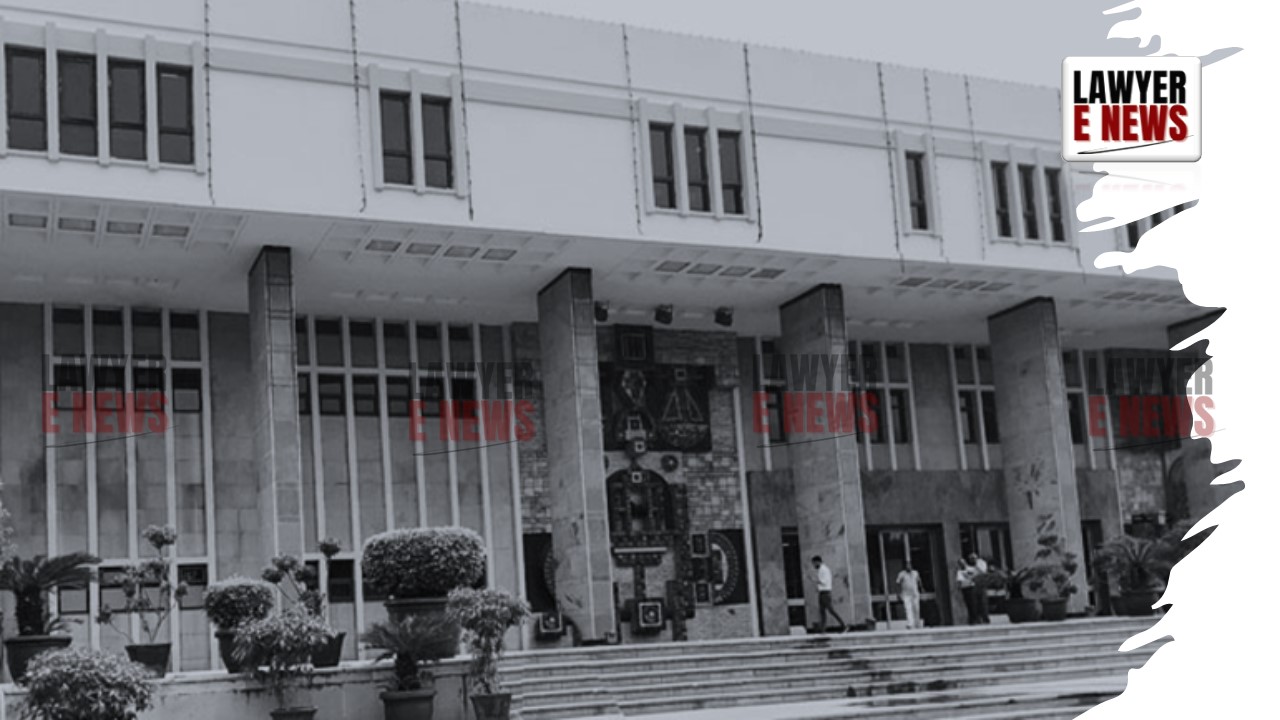-
by sayum
14 February 2026 2:22 PM



On November 18, 2024, the Delhi High Court dismissed an appeal filed by a practicing advocate challenging the denial of her request for re-allotment of a first-floor chamber at the Saket District Courts Complex. The Division Bench of Justice Yashwant Varma and Justice Dharmesh Sharma upheld the chamber allotment made to senior advocates, emphasizing the importance of following seniority-based guidelines while rejecting claims of preferential allotment based on medical or humanitarian grounds.
The appellant alleged that the vacancy of Chamber No. 103 was not publicly notified, leading to its arbitrary allotment to two senior advocates. While the court acknowledged the lack of public notification, it concluded that the allotment adhered to seniority-based guidelines. The court observed:
“The failure to notify the vacancy raises concerns; however, it is equally significant that no other lawyers—potentially more senior—have come forward to challenge the allotment.”
The court recommended that the Chamber Allotment Committee ensure transparency in future allotments to prevent similar grievances.
The appellant sought the chamber on the basis of her and her husband’s medical conditions, arguing that proximity to the first floor was essential for their health. The court clarified that medical grounds for chamber allotment are valid only when the applicant’s own health condition is directly affected. The bench noted:
“The petitioner’s ground for exchange is based on her husband’s medical condition, not her own. This distinction is significant, and the reliance on past precedents appears misplaced.”
It was further highlighted that the guidelines governing chamber allotments do not presently accommodate medical grounds for re-allotment.
The court reiterated that chambers must be allotted strictly in accordance with the relevant guidelines, primarily based on seniority. The appellant's rejection of an alternative chamber on the second floor weakened her case. The judgment stated:
“The petitioner has no legal right to claim allotment of any particular chamber. The chamber falling vacant can only be allotted in terms of the relevant guidelines, which currently do not provide for re-allotment on medical grounds.”
The appellant, a practicing advocate since 2010, shared a sixth-floor chamber with her husband at the Saket District Courts Complex. Following her husband's stroke in May 2022, she sought re-allotment of Chamber No. 103, located on the first floor, citing medical grounds.
The Chamber Allotment Committee allotted the chamber to two senior advocates (respondents) in July 2024 based on seniority, without issuing a public notice of the vacancy. Aggrieved, the appellant filed a writ petition before a Single Judge of the Delhi High Court, which was dismissed on October 14, 2024. The Single Judge found no violation of established allotment guidelines, though it noted a lack of transparency in the process.
The Division Bench upheld the allotment of Chamber No. 103 to the respondents, noting that they were senior to the appellant in eligibility. Even if the vacancy had been publicly notified, the appellant’s lower seniority would have placed her at a disadvantage.
The court emphasized that the appellant was offered an alternative chamber on the second floor, which she declined. This refusal undermined her claim for preferential allotment of Chamber No. 103.
While dismissing the appeal, the court suggested that the Chamber Allotment Committee consider the appellant’s application for a first-floor chamber on humanitarian grounds if such a chamber becomes available in the future.
"Despite the lack of transparency, the petitioner’s request cannot supersede seniority-based allotments, particularly when her claim is based on medical grounds related to her husband and not herself."
"The bottom line is that the petitioner has no legal right to claim allotment of any particular chamber. Allotments must adhere to established guidelines, which do not currently recognize medical grounds for re-allotment."
"The Committee must take due note of the concerns raised in this petition and ensure that future vacancies are transparently notified to all eligible members."
The Division Bench dismissed the appeal, holding that there was no illegality or perversity in the Single Judge’s judgment or the allotment process. However, the court emphasized the need for greater transparency in future chamber allotments and suggested that the appellant’s request for a first-floor chamber be considered on humanitarian grounds in the event of future vacancies.
Decision Date: November 18, 2024
